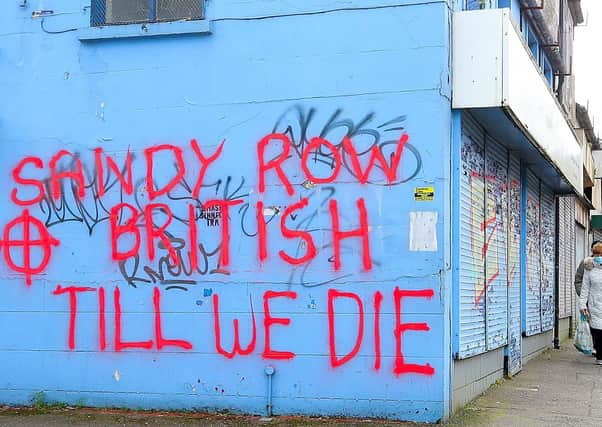DUP: ‘Selfish’ Brussels using Northern Ireland as ‘bargaining chip’


The EU is apparently considering shelving plans to ratify the Brexit trade deal because it claims the UK has “violated” the NI Protocol.
Brussels is also reportedly considering a range of legal action after the UK initially extended grace periods for customs checks on agri-foods.
Advertisement
Hide AdAdvertisement
Hide AdThe EU threats followed public exchanges between the UK’s Brexit negotiator Lord David Frost and European Commission vice-president Maros Sefcovic.
The DUP’s Westminster leader Sir Jeffrey Donaldson claimed last night that the EU’s threats, potentially putting all EU-UK trade at risk, only illustrate the need to resolve the issues around the NI Protocol once and for all.
“The veiled threat from Brussels not to ratify the TCA [Trade and Co-operation Agreement secured at Christmas] and punish the UK in future talks demonstrates that this is all a power play and nothing to do with peace,” the MP said. “Brussels is selfishly intent on using Northern Ireland as a bargaining chip. The UK Government was wrong to agree the protocol and failed to see the impure motivations of the EU.”
The grace periods for parcels have been extended to October 1.
Advertisement
Hide AdAdvertisement
Hide AdBrussels could hit Britain with legal action, suspend its trade deal with the UK and block the City of London from the Single Market in retaliation for the move to extend grace periods.
Fine Gael’s Mairead McGuinness, the EU financial services commissioner, said it was important to “send a message” to the UK about Brexit.
Christophe Hansen, a lead MEP on Brexit, tweeted: “If this is David Frost’s idea of showing that he is back to his old games, he should be mindful of the fact that the European Parliament has not ratified the [trade deal] yet.”
Ireland’s Foreign Minister Simon Coveney described the UK’s decision to extend the grace period as “very frustrating”.
Advertisement
Hide AdAdvertisement
Hide AdSpeaking on RTE Radio 1, Mr Coveney accused the UK of breaking the Northern Ireland Protocol and its own commitments.
“This is not the first time this has happened, that they are negotiating with a partner that they simply cannot trust,” he said.
However Stormont First Minister Arlene Foster accused him of ignoring the views of unionists and assuming they will go away.
“He talks about not having a partner you can do business with,” she said. “I have to say he should reflect on that, because he’s not listening to the unionist people of Northern Ireland, the entirety of the unionist people of Northern Ireland.
Advertisement
Hide AdAdvertisement
Hide Ad“He’s ignoring them and thinking that they’ll just go away – well we’ll not go away.
“And we need to be listened to in relation to our very deep concerns about trade diversion.”
Mrs Foster also reiterated her criticism of Ireland’s deputy premier Leo Varadkar, referring to his use, when taoiseach, of a newspaper article about a terror attack on a border post as he addressed fellow EU leaders on the reason why checkpoints on the island of Ireland needed to be avoided.
“What sort of message did that send to people? Was it that terrorism works?” she asked.
Advertisement
Hide AdAdvertisement
Hide Ad“Because I think that’s a very bad message to send. I said at the time it was reckless, I said it was very careless. But he did it.
“And I think that he needs to reflect on what he did.”
Mr Coveney said he had a “blunt” conversation with Lord Frost and Northern Ireland Secretary Brandon Lewis on Wednesday after learning of the UK Government’s actions and “strongly advised them not to do it”.
However, Mr Lewis insisted there was a “very real risk” that Northern Ireland would have been faced with more empty food shelves within a few weeks if the government had not intervened on Brexit grace periods.